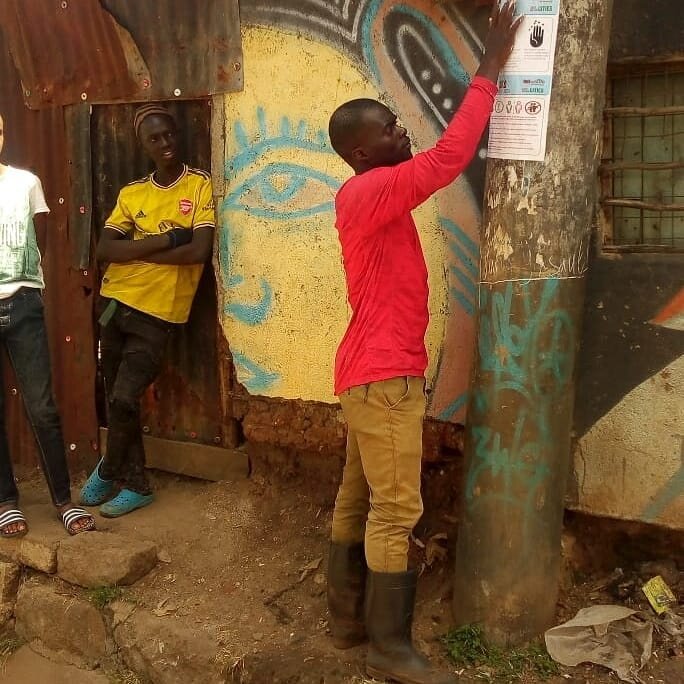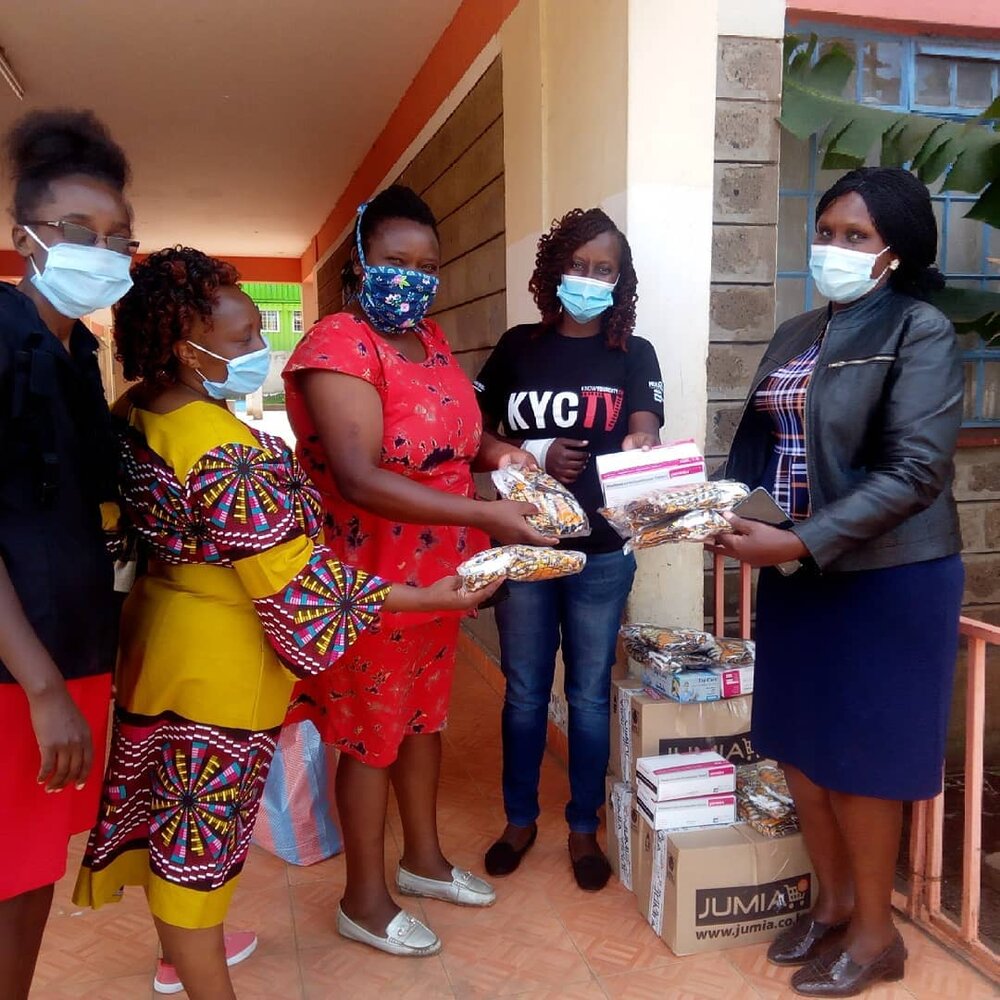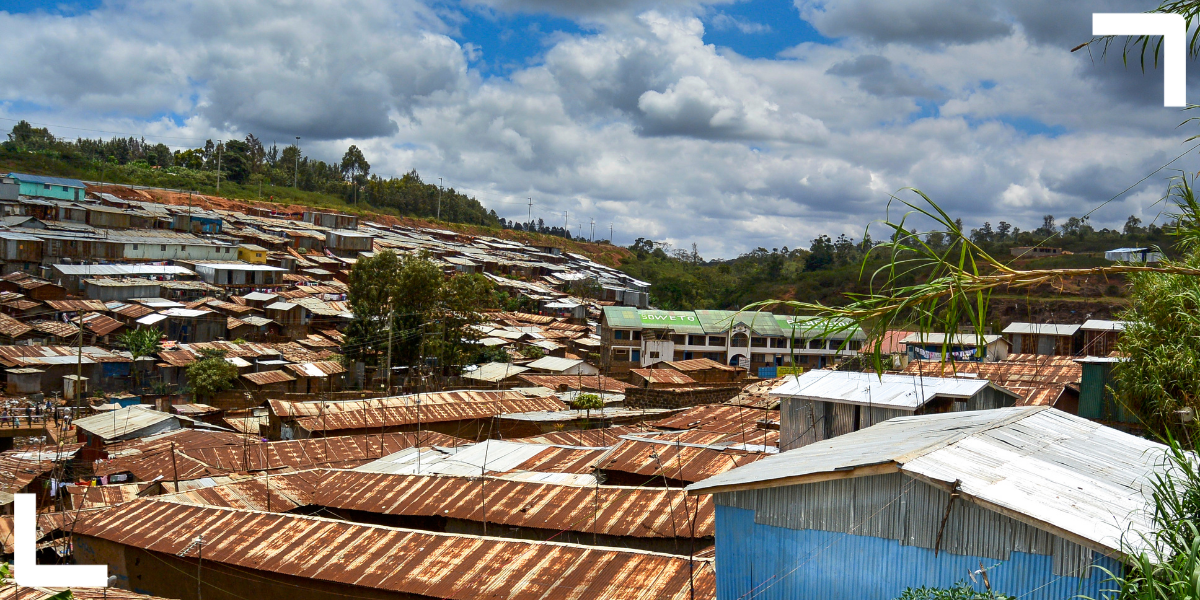By Professor Diana Mitlin, CEO of the African Cities Research Consortium
This case study – originally published as part of the Covid Collective Research for Policy and Practice series – shows how an urban social movement was able to produce the knowledge that state agencies needed when the pandemic struck, securing more inclusive policy responses and building legitimacy for alternative knowledge processes and associated development ambitions.
As soon as the Covid-19 pandemic struck Kenya, the Muungano Alliance began to collect data from its community leaders, who are based in 313 informal neighbourhoods across 21 counties. From March-June 2020, the Alliance collated information from hundreds of community leaders and produced regular reports of the situation on the ground. As the data collection processes were fine-tuned, the collection process tracked six informal settlements in Nairobi County, three settlements in Kisumu County, and one in Nakuru County.
The Alliance is a coalition of three agencies working closely together. Muungano wa Wanavijiji is a social movement made up of 1,360 grass-roots savings groups in informal settlements across Kenya. These groups attract women residents who are unable to save within their home and who are keen to secure development opportunities for themselves, their families, and communities. SDI Kenya is a small technical assistance NGO that supports the work of Muungano in respect of advocacy and material improvements (tenure security, access to basic services, and housing developments). The Akiba Mashinani Trust is a loan fund which provides the capital Muungano savings groups require to expand both income generation and housing investment.
Ensuring conditions in informal settlements were well understood by county and national governments was an immediate concern of the Muungano Alliance. In addition, the Alliance wanted to help provide appropriate advice to the 89,153 Muungano members in savings groups as well as all their neighbours living in informal settlements.
The data collection process was focused on three main areas: incidence of Covid-19 (cases, deaths, testing), government and community responses that reduced the health emergency, and access to the resources needed for survival. Narrative reporting was carried out by youth documenters in Muungano covering what was going on in their settlements.
Underpinning the Muungano Alliance’s work is the objective to amplify the voice of women within Kenya’s urban development policy and planning. As information triggers understanding, women and men who are part of Muungano begin to organise their families and neighbourhoods to address the pandemic. As a programme of required activities becomes clearer to local activists, their demands become stronger that government address health and economic emergencies. The speed and depth of the Alliance’s collection and aggregation of data reflects capabilities built up over decades.
Once information began to flow upwards from the community to government and downwards to community leaders, then action was catalysed. Community groups began to improve access to handwashing stations and masks. They identified isolation centres and provided emergency access to food. The relevant authorities began to reach out to the Alliance, recognising the value of the information, which triangulated well with other sources, and the significance of their work.
SDI Kenya was invited onto the Ministry of Health’s taskforce on Covid-19 in informal settlements. Earlier findings from the West African Ebola outbreak highlight the importance of local ownership of decision-making by informal settlement leaders (working closely with the health ministries) for the required action to be taken.

Youth in Korogocho informal settlement, Nairobi, put up public health posters in their neighbourhood. Photo: Muungano KYC.TV

Muungano representatives distributing personal protective equipment to community health volunteers in Nairobi. Photo: Muungano KYC.TV
Since March 2020, government policy and programming has shifted significantly.
First, Nairobi Metropolitan Services finally began infrastructure improvements in Mukuru, an informal settlement of 100,000 households on private land. Research in 2015-16, led by the Muungano Alliance, catalysed the gazetting of a Mukuru Special Planning Area in August 2017. Nairobi County, supported by the Alliance and a consortium of 40 agencies, finalised some sectoral plans in March 2020. Nairobi Metropolitan Services is facilitating the process for finalising the overall integrated development plan in the next few months.
Second, by July 2020, the Alliance recognised the imperative to register as many informal settlement residents as possible, in order to pressure the government to provide a universal programme of support for all informal settlement residents. When the government subsequently rolled out an emergency cash transfer programme it included, for the first time, informal settlement residents. The cash transfers represent a positive and significant shift in government response to disasters in informal settlements that Muungano hopes will continue beyond the Covid-19 response.
This rapid process of Covid-19-related information-gathering and dissemination reflects the substantive capabilities within the Muungano Alliance. Logistically, they were able to manage the initial interest by hundreds of their members, develop an appropriate monitoring framework, and roll out multimedia posts. Strategically, the information became a way of demonstrating the organisational power of informal settlement residents. It raised the profile and legitimacy of the Muungano Alliance and helped to extend and deepen relations with relevant state agencies.
It is likely that this work had a positive influence on inclusive responses to Covid-19 by the Government of Kenya.
This article originally appeared in the Covid-19: Community resilience in urban informal settlements briefing paper, part of the Covid Collective Research for Policy and Practice series published by the Institute of Development Studies (IDS).
Learn more about:
Note: This article presents the views of the author featured and does not necessarily represent the views of the African Cities Research Consortium as a whole.
The African Cities blog is licensed under Creative Commons Attribution-NonCommercial-NoDerivatives 4.0 International (CC BY-NC-ND 4.0), which means you are welcome to repost this content as long as you provide full credit and a link to this original post.


